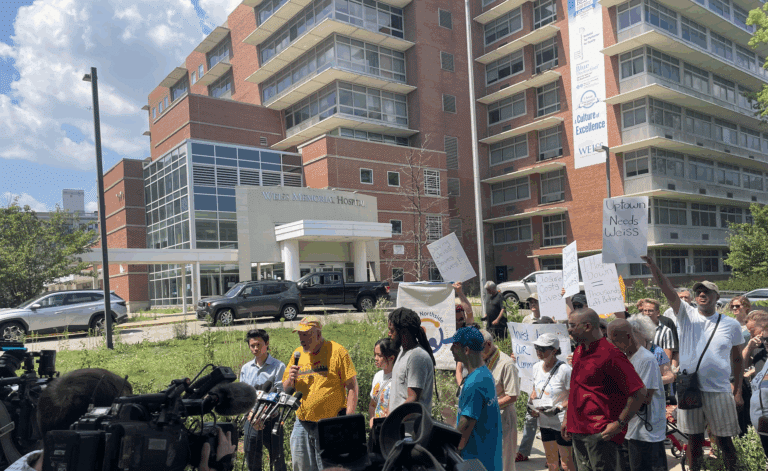Harvard Health Letters
If your wife or sleep partner often seems bleary-eyed and resentful in the morning, you may be one of the millions of adults who snore habitually — a condition that affects twice as many men as women. Snoring occurs when your upper airways narrow too much, causing turbulent airflow. This, in turn, makes the surrounding tissues vibrate, producing noise.
“Snoring is a sign that there is a really narrowed space,” says Dr. Sanjay Patel, a sleep disorder specialist at Harvard-affiliated Beth Israel Deaconess Medical Center. “That happens either in your nasal passages or in the back of your throat.” Some men are snorers because they have excess throat and nasal tissue. Others have floppy tissue that’s more likely to vibrate. The tongue can also get in the way of smooth breathing.
Once the source of the snoring is identified, you can take appropriate steps to dampen the nightly din. These include not drinking alcohol at night, changing sleep position, avoiding snore-inducing medications, and addressing causes of nasal congestion.
How to alleviate snoring
Here are some factors that contribute to snoring and what you can do to alleviate them.
Alcohol. Alcohol, a muscle relaxant, can slacken the tissues of your throat while you sleep. “We see this all the time,” Patel says. “Spouses say the snoring is tolerable except for the nights when their partner has had a couple of beers.”
Body weight. Extra fat tissue in the neck and throat can narrow the airways. Losing some weight could help to open the airways if the person is overweight or obese, although many people who are lean also snore.
Medications. Medications that relax muscles can make snoring worse. For example, tranquilizers such as lorazepam (Ativan) and diazepam (Valium) can have this effect. In contrast, antihistamines may actually alleviate snoring by reducing nasal congestion.
Nasal congestion. Mucus constricts the nasal airways. Before bed, rinse stuffy sinuses with saline. If you have allergies, reduce dust mites and pet dander in your bedroom or use an allergy medication. If swollen nasal tissues are the problem, a humidifier or medication may reduce swelling.
Sleep position. When you lie on your back, slack tissues in the upper airways may droop and constrict breathing. Sleeping on your side may alleviate this. You can also try raising your torso with an extra pillow or by propping up the head of the bed a few inches.
Smoking. Men who snore are often advised not to smoke, but the evidence this will help is weak. Needless to say, there are already plenty of other good reasons to quit smoking.
Anti-snoring products
Many products claim to help with snoring, but few of them are backed by solid research. One potentially effective option is wearing an anti-snoring mouth appliance, which pulls the jaw (along with the tongue) slightly forward to open the upper airway. An appliance made by a dentist can cost around $1,000. Do-it-yourself kits cost much less, but may not be as well tailored to your mouth.
Nasal-dilating strips are inexpensive and harmless, and some small studies suggest they may help reduce snoring. You apply these adhesive strips across your nose at bedtime to help to open up the nasal passages. Breathe Right is one well-known brand, but there are many others available at relatively low cost.
If you are unsure what to do about snoring, a physician can advise you and also make sure your snoring is not related to an underlying sleep disturbance, common in men, called obstructive sleep apnea. “The louder the snoring, the more likely it is to be related to sleep apnea,” Patel says. “Not all men who snore have sleep apnea, but if the snoring is frequent, loud, or bothersome, they should at least be evaluated.”
Try the more conservative steps described above before considering one of these outpatient surgical procedures to alleviate snoring:
LAUP. In laser-assisted uvulopalatoplasty, the physician uses a carbon dioxide laser to shorten the uvula (the hanging dongle of soft tissue in the back of the throat) and also make small cuts in the soft palate on either side of the uvula. As these nicks heal, the surrounding tissue stiffens.
Palatal implants. Also known as the Pillar procedure, this treatment involves implanting up to three matchstick-sized plastic stiffening rods into the soft palate. The rods help prevent collapse of the soft palate that can trigger snoring.
Somnoplasty. Also known as radiofrequency tissue volume reduction, somnoplasty uses radio waves to heat and shrink soft tissue that vibrates during snoring. It takes a few minutes to perform and doesn’t cause bleeding, but it may have to be repeated to achieve results. – Harvard Men’s Health Watch














